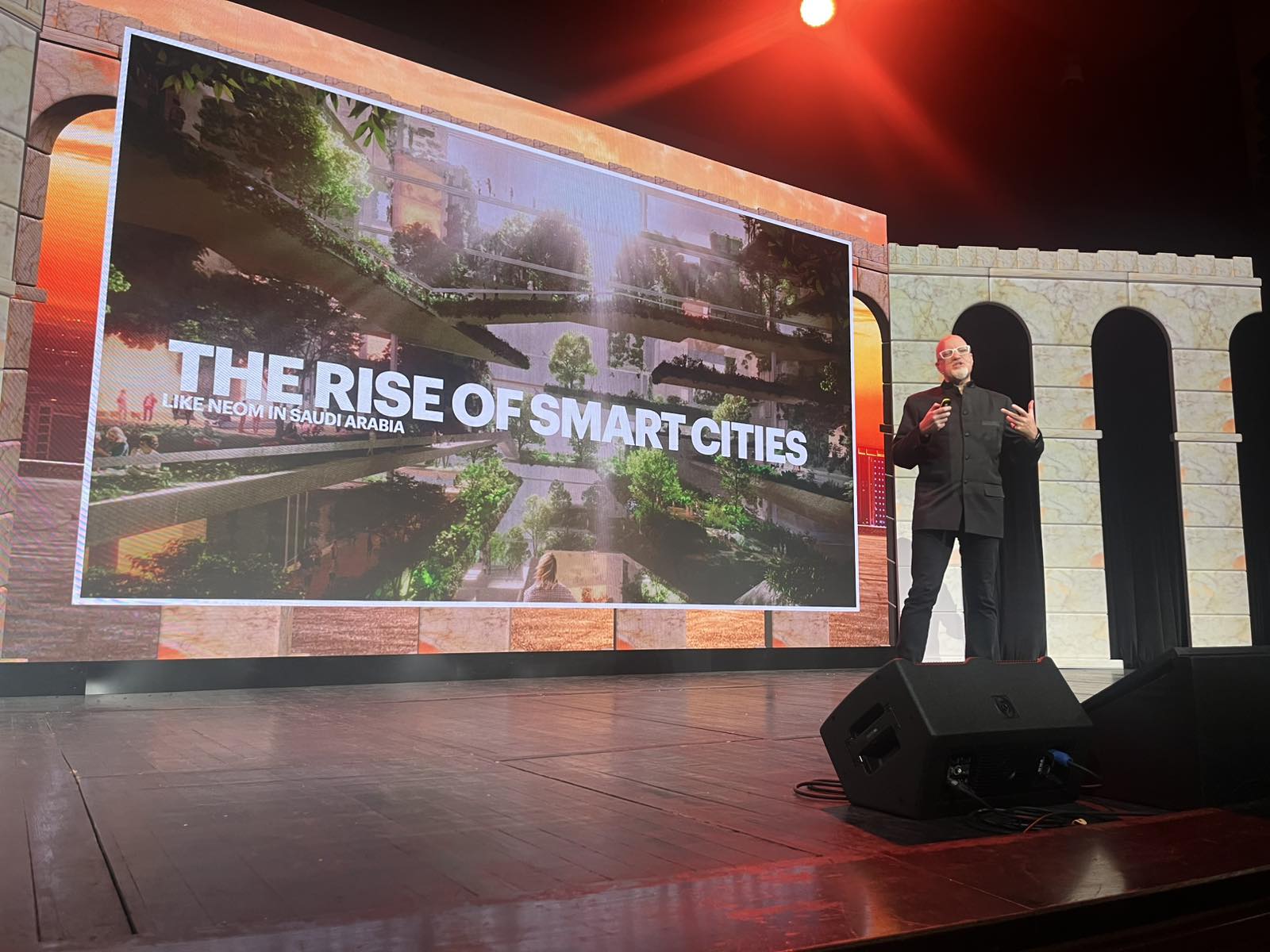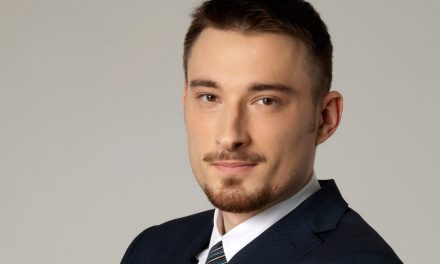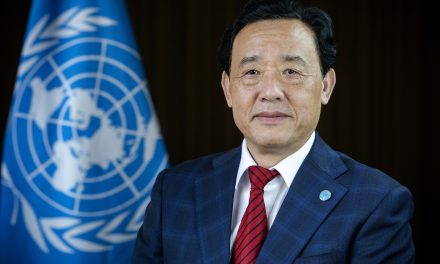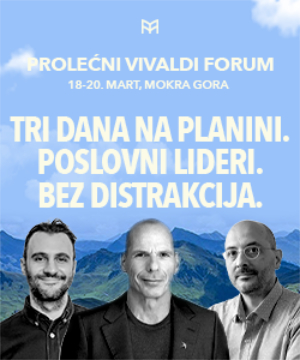Author: Head of PR and Marketing Communications DepartmentBanca Intesa Beograd

“Dead man walking,” says my colleague Zoran—this is the impression he had after the fantastic performance of Brett King in Belgrade, organized by Banca Intesa in the Madlenianum Theatre. Besides being the title of one of the famous American movies, from 1998, directed by Tim Robins, this time the formulation relates to the possible vision of the world amid domination of information technologies.
In his manner as a staunch futurist, with the soul and aesthetics of a romantic, Brett spoke about what might await us in a few decades, something reachable within many of our lifetimes but still so unimaginable. During his performance and in his conversations before and after, he talked about phenomena already unfolding before our eyes, such as immigration trends, natural disasters caused by climate change and food shortages. With the childlike gleam of excitement on his face, Brett gave them an entirely different shape in the future.
In essence, what would be the purpose of artificial intelligence and robotics development if not to address these very challenges? Although today we all boast about and compare the extent to which we use ChatGPT, various application solutions, and platforms that provide diverse information, analysis, and precise answers with minimal effort and error, as well as creative platforms integrating AI solutions, these uses are still far from its full potential and ultimate purpose. According to the conclusion drawn from King’s narrative, the ultimate purpose of technology is to mitigate the damage done to our natural environment and turn the situation around for the overall benefit of the planet and society.
The purpose of technological achievements, as well as the ethical and moral foundation of the narrative, should be based on the vision of a prosperous society burdened only by the quality of extended life expectancy and the amount of knowledge aimed at improving collective status. This indeed sounds like a utopia that only a futurist could imagine. So, Brett says there’s no obstacle to ensuring that, through advancements in AI and robotics, humans no longer need to work or create for economic security. In the scenario he envisions, this would be the job of networked artificial intelligence, which would form the backbone of autonomous supply chains and production processes, leading to an automated economy (machine-to-machine technology). According to him, future challenges would be resolved, leading to a moment when there would be no resource deficits, where supply would be infinite, and demand would not affect prices.

Brett King in Belgrade, guest of Banca Intesa in the Madlenianum Theatre
In a world where the economy is self-sustaining and based on a workforce founded on technological wealth, humans would engage in their intellectual development in line with their preferences, while AI would take care of everything else. What would prevent, in such a world, mining resources not on our planet but on asteroids and other cosmic bodies beyond Earth? What would stop humans from colonizing another celestial body? Brett didn’t go so far as to announce the colonization of, say, Mars, but to quote him: “Why not?”
Let me return to Zoran’s remark, “Dead men walking.” All those who reach the year 2050 without thinking about these topics are just that—dead men walking, unaware that their real life ended in the previous era and that they cannot be ready for the future. I believe many were surprised by many ideas Brett presented. However, thanks to the incredible progress and discoveries happening as we tell this story, we know this imagined world could become real — even much more real than those spaceships and silver suits we imagined inspired by the cult Kubrick’s Odysse (1968) one of the first sci-fi movie, which focused on evolution, existentialism and development of artificial intelligence in its own way.
The only thing left is to ask Brett next time we see him what he thinks about how human consciousness evolves with all these changes. Does a person lose their individuality, or is it upgraded? Is that good or bad? Is the evolution of the human being a process naturally induced, or could it be that humanity is the most relevant evolutionary factor to itself? And again, the question — good or bad?












